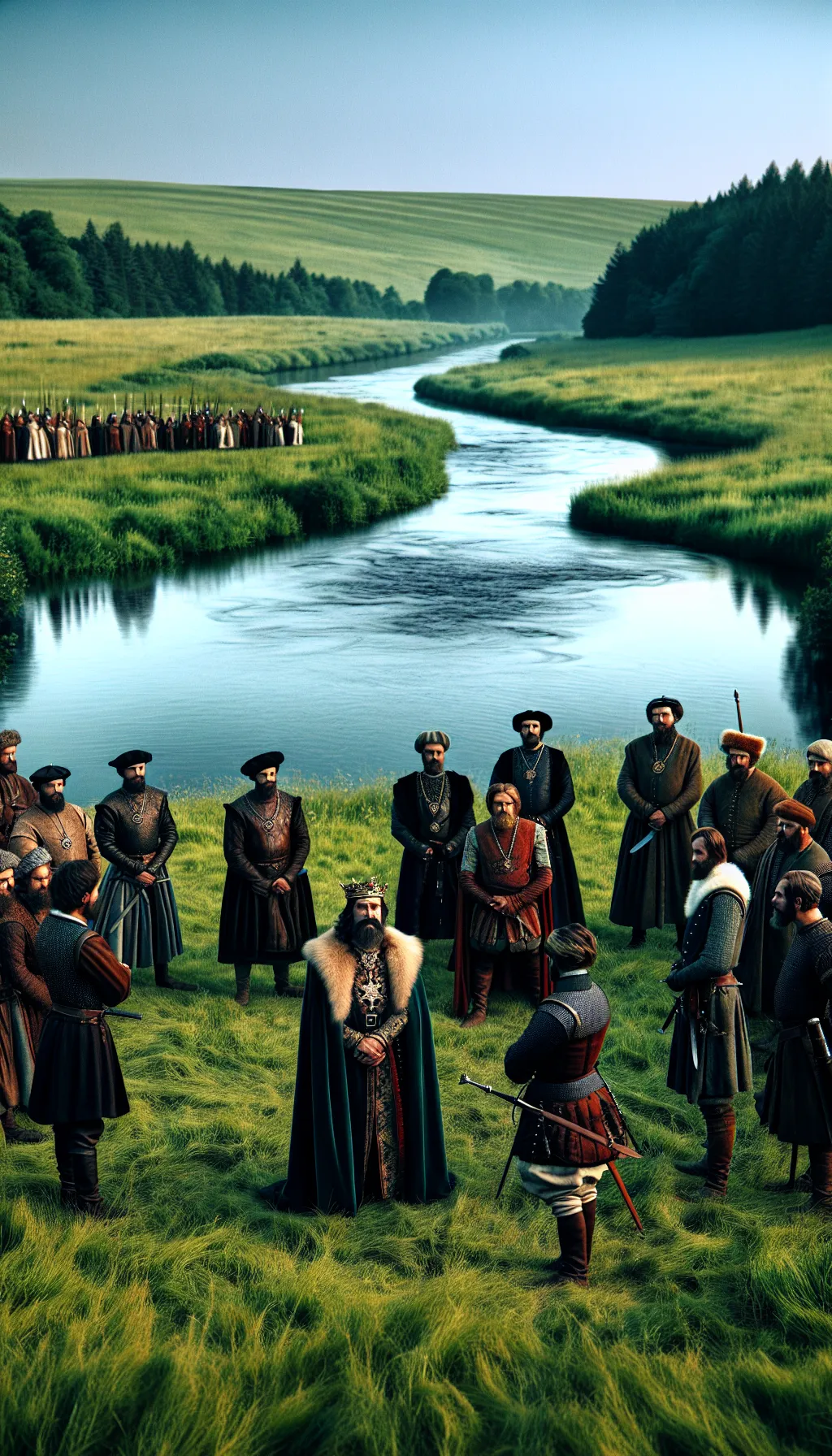England – The Birth of Liberty – June 15, 1215
TLDR;
- Event: On June 15, 1215, King John of England signed the Magna Carta at Runnymede, under pressure from rebellious barons, marking a pivotal moment in the history of governance.
- Significance: The Magna Carta introduced the revolutionary idea that the king was subject to the law, laying the foundation for constitutional law and influencing future documents like the U.S. Constitution.
- Aftermath: Initially annulled by Pope Innocent III and leading to the First Barons’ War, the Magna Carta was reissued after King John’s death, becoming a symbol of liberty and justice.
- Legacy: Its principles of the ‘rule of law’ and protection of rights have inspired movements for freedom worldwide, transcending its original medieval context.
–
Story
In the heart of Runnymede, a meadow by the River Thames, tension crackled in the air. On June 15, 1215, a reluctant King John of England faced a coalition of rebellious barons. The king, notorious for his heavy-handed rule and relentless taxation, was about to make a decision that would echo through the ages.

The barons, weary of John’s tyranny, had forced him to the negotiating table. Their demand? A charter that would limit the king’s powers and protect their rights. This was no mere squabble over taxes or land; it was a battle for the soul of governance itself.
As King John placed his great seal on the Magna Carta, the world shifted. This ‘Great Charter’ was a radical document for its time, asserting that the king was not above the law. It promised protection from illegal imprisonment, swift justice, and limitations on feudal payments to the Crown.
The Magna Carta was not an immediate success. King John sought papal annulment, which Pope Innocent III granted in August 1215, declaring the charter null and void. The First Barons’ War erupted afterward, but John’s death in 1216 led to the reissuing of the Magna Carta under his successor, Henry III. Yet, the document’s legacy endured, laying the groundwork for constitutional law and inspiring future generations to fight for liberty and justice.
The Magna Carta’s principles have transcended time, influencing the United States Constitution and the Universal Declaration of Human Rights more through its symbolic legacy (e.g., ‘rule of law’) rather than direct legal continuity. It was a beacon of hope, a testament to the enduring struggle for freedom.
–
| Would a different outcome at Runnymede have changed the course of democracy? |